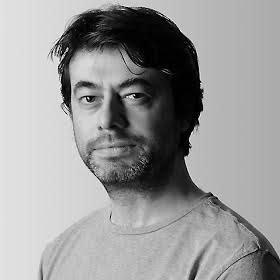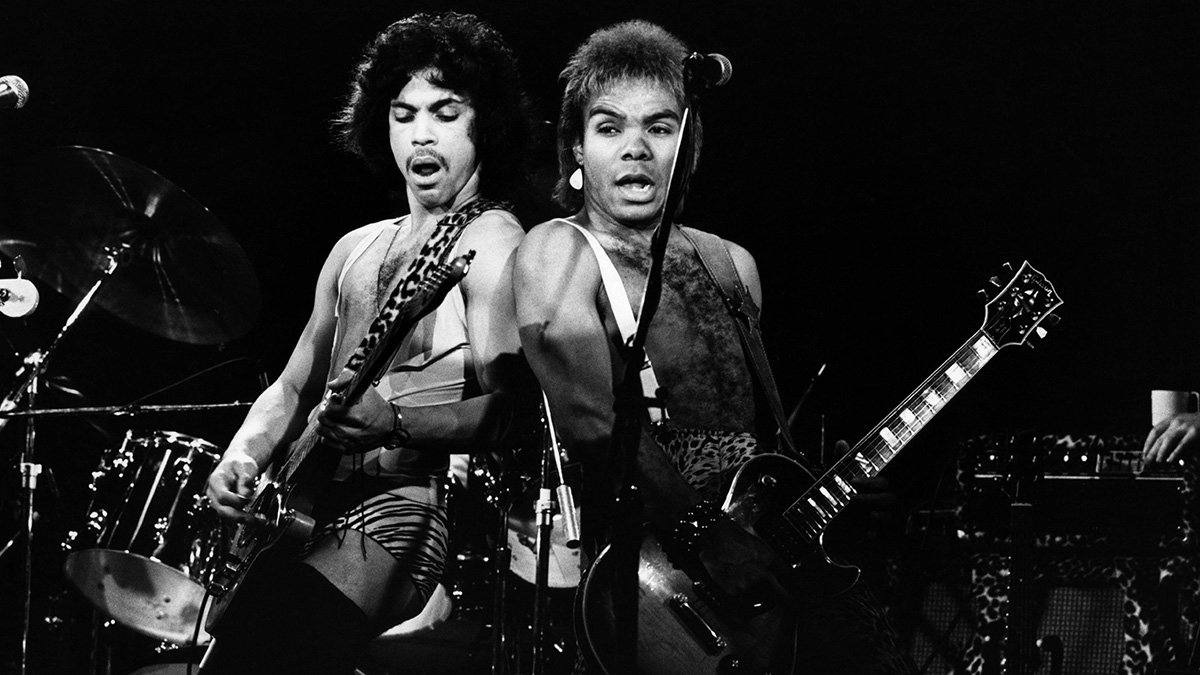‘Super-engineer’ Billy Hickey: “People get obsessed by the top of Ariana Grande’s voice and think there’s a lot of EQ shenanigans to get that, but that’s just her voice”
Ariana Grande’s must-have engineer for her last two albums on the state of play with 2021 studio sessions and how to get the hottest sounds for the biggest artists
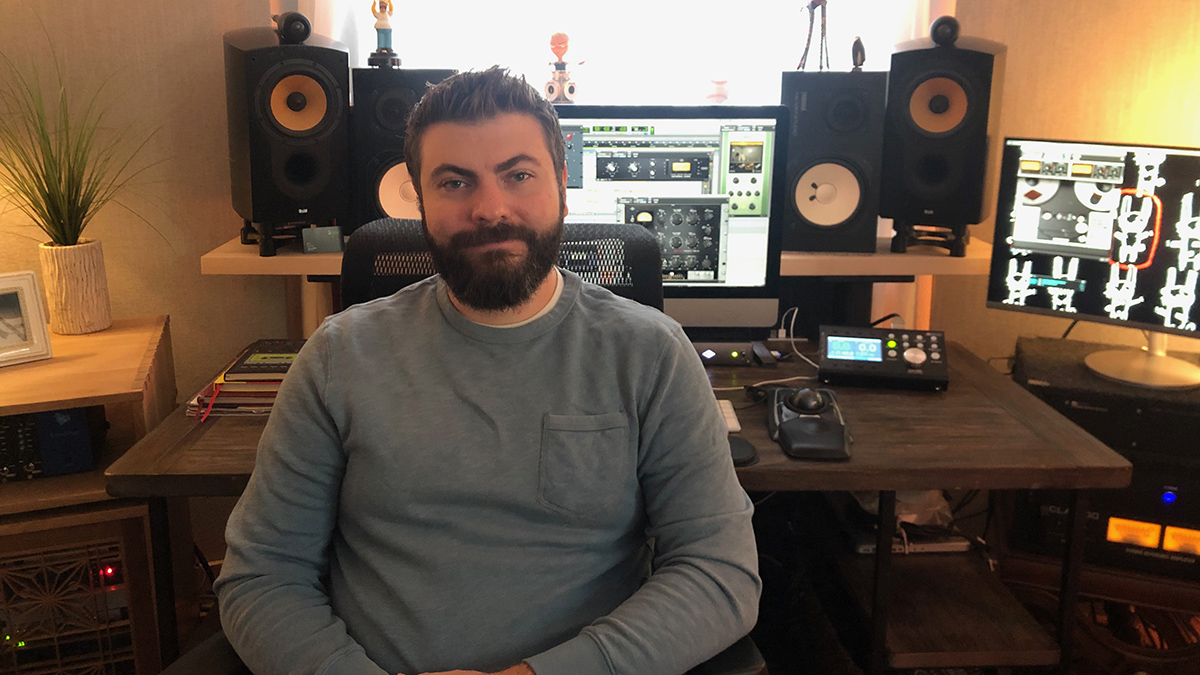
Never forget that, while the artist is always front and centre on a great track, its producer is never too far into its shadows. But what about the real power when it comes to making the magic happen in 2021?
Step up engineer Billy Hickey, the man who’s been making waves and getting THE sound for the likes of Ariana Grande, Selena Gomez, Justin Bieber, Lana Del Rey, Usher, BLACKPINK, Lana Del Rey, Juice WRLD, Nick Jonas, Afrojack and more.
Working fast and smart, Hickey is the go-to guy for tracking with the stars and mixing huge hits from his own unassuming studio. We’re all familiar with the phenomenon of the super-producer. Welcome to the age of the super-engineer…
So with so many projects and people, you must prepare a lot before a session?
“It depends on whether I’m tracking or mixing. A tracking session, vocal overdub, or any kind of recording, I try to familiarise myself with their stuff. That’s if they’ve already had records out. Just so I get an idea of what kind of world they live in.
“If it’s vocal tracking I have a vocal template that works for me and I always use. And if there’s instrumentation or a band’s involved then I’ll have definitely already made a mic list and I’ll have made a specific template for that day that incorporates all that.
“I was working with this one producer a lot recently and he always had certain keyboards that he used so I’d have a template with tracks for them so I was always ready. Tracks and inputs. So if he walked over to them I was ready to record.”
Get the MusicRadar Newsletter
Want all the hottest music and gear news, reviews, deals, features and more, direct to your inbox? Sign up here.
Is there anything that you always do on a session, or never do on a session?
“I never EQ vocals. That’s the one thing I won’t EQ. Just because when I go and punch in the next day and the EQ is not right it’s a nightmare. It’s ‘Oh shit… Where did I have that set?’
I never EQ vocals. That’s the one thing I won’t EQ.
“If you’re recording a guitar or a bass, though, it’s rare that people are going to want to punch in on one note. They do the whole take. And then if there’s a problem you fix it with an edit, or just re-do the part.
“But with vocals… Lyrics change… They’ll want to add or subtract harmonies… And when you punch in and it sounds different on the punch, that’s a big bummer for everyone.”
It’s fair to say that your work has a real signature to it. A big warm sound. It’s very upfront but it’s always ‘big’. Is that what you bring to a session?
“I always joke that I just want everything to sound like 90’s rock! That’s what I bring to it. I try not to force anything of mine onto anybody else. If someone was to sit over me and say ‘EQ like this’ and so on, I probably wouldn’t take that gig, ‘cos that would be as annoying as hell.
“I think my gut is to try and fill up the space but also keep it upfront. A lot of pop these days is very ambient and almost hollow sounding. I get it, but it’s not my instinct to go there. There aren’t a lot of people doing that big sound these days. Everything has got very narrow, very filtered, everything has its own little place. It’s changing now, but three to five years ago you had your bass which was all [Roland TR] 808s, your melody was all high, tinkly, high frequency stuff and the only thing that sat in the middle was vocals.
“You listen to the old rock engineers and they’re trying to make space for the vocals in between the guitars, but now you don’t have to make space for anything! Nothing overlaps! And that’s cool and all, but that’s not always my favourite and I think things are trending away from that now.”
Like Ariana and Justin, Stuck With U. That’s got such an arresting sound. A modern edge, but super retro and warm. Did that sound come from the tracking or was it in the mix?
“So that was Josh Goodwin who mixed that, and he did an amazing job. A lot of that was right there in the production. It didn’t sound worlds different when we were tracking vocals. It had that retro guitar sound that was very warm. There was a Rhodes - warm instrumentation, really filling up that mid-range and lower mids.
“It made for a really cool sound because Ariana and Justin’s vocals aren’t necessarily in that lane. So we had a retro sound, but the vocals weren’t retro. It was a mismatch where the two worked really well together.”
In the early days of engineering it was just about setting things up, plugging things in. But what about now? Are things getting more complex or is technology making things easier?
“Today you have so many more tools at your disposal. For me, once it’s in the box, it stays in the box. When mixing records, I have some hardware and, once in a blue moon, if I really feel like my Dolby [301 and 361] As are going to do something that a plugin won’t, and maybe I feel like patching it in… But I usually talk myself out of it.
“Expectations have changed so much. I came to the industry in the early 2000s and things were kind of changing over. The old guard were leaving, and you had the newer Pro Tools engineers coming in. If something wasn’t right the old guard were like ‘We’re going to stop this. We’re going to fix it and get it right.’ And that’s great. That’s what makes great records. But these days it’s like ‘Whoa, we’re not stopping…’ You either get it right away, or you figure out how to fix it later. You definitely can’t say ‘Yeah it was a great take, but we can’t use it because there was this noise…’
These days ‘the producer’ is very much the person that ‘made the beat’. So a lot of the track’s aesthetic and taste are already baked into that.
“There are artists who will say, ‘Oh, OK’. But most are like ‘What the hell?’ Before, that used to be ‘That’s just part of the studio’. Now, as the engineer it’s my job to make sure that somehow, magically, everything works exactly as it should. Any technical problems are my fault.”
Where is the crossover between producer and engineer these days? Back in the ‘60s the Engineer literally just operated the machines…
“I would say it’s moving back to how you were saying: Engineers take care of the technical stuff. I feel that when you got to the ‘80s and ‘90s there were producers who really made ‘their sound’. You had a producer who was telling the engineer exactly the sound that they wanted. It was the producer’s aesthetic and taste and the engineer just had to ‘get that’.
“These days ‘the producer’ is very much the person that ‘made the beat’. So a lot of the track’s aesthetic and taste are already baked into that. Like when I was working with Jason Evigan on a Nick Jonas track, and he said ‘Let’s just get the biggest warmest vocal tone we can get’. So I go from there and he’s able to just think about performance and making sure the record gets done.”
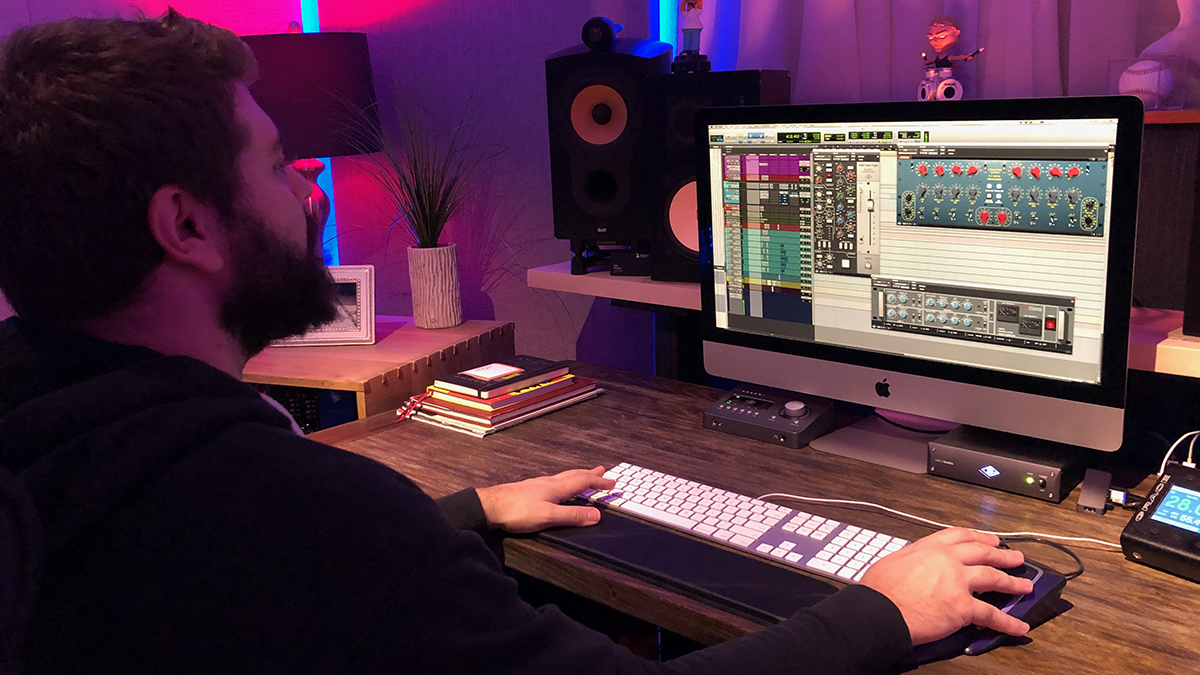
Do the big names like that big warm vocal sound while they’re tracking?
“Yeah. Vocal-wise I like to track to a killer rough mix. And I try to get it fast. Nobody likes singing into a ‘blah’ mix. And I can tell when it’s been recorded that way. I can tell! And when I mix it, that’s when they want to re-sing it. Because they’ve never really heard their vocals before!
“The more it sounds like the record the better you’re going to sing. They can hear the delay and the reverb and they can use that to carry out this note and make it do something. It’s a self-feeding thing. The delay becomes a big part of why they sang it like that.
“My goal is that, while you’re tracking it, this will sound like a finished record before the end of the night. So if you don’t like something tonight, then you need to fix this. But then, after that, there shouldn’t be any surprises.”
Let’s wind it back. How did you first get into engineering?
“When I was in high school I was in bands. I played drums… terribly. And because I was the drummer everybody came to my house because I had the most stuff to move.
“My friend got a four-track Fostex tape recorder and then there were four-track and eight-track MiniDiscs. And we would record my band with a Behringer mixer and some microphones. And then somehow I was more concerned about how it was being recorded than what I was with playing. Then I’m inviting my friends' bands to the basement to record.
“I was never the best drummer! I knew I was never going to play in a 5/17 time signature… I just did more and more recording and then went to college for that.
“I engineered at a small studio just outside [Washington] DC but I was kind of biding my time. I knew that I had to move to a major market. I knew that Nashville wasn’t for me. And the New York scene was dying. So I knew that LA was where it was going to be. So in 2011 I made the jump - I went to the Record Plant and I started as a runner for three and a half years. Then I assisted. And then I’m an engineer, and that’s where I am now.”
Was it skill or luck that got you in the right place at the right time?
“There was this record by Banks and Stealz - one of my favourite things I’ve worked on - so that’s Paul Banks from Interpol and RZA [Wu Tang Clan]. They booked a session at the Record Plant for three weeks and the studio manager asked if I could assist it. But I had this thing with my healthcare where it was going to cost me a whole lot of money to reschedule it so I said, ‘I can’t afford to do that. However, if you got me to engineer (which would pay significantly more) then I’d be willing to make the change’. And everything worked out beautifully.”
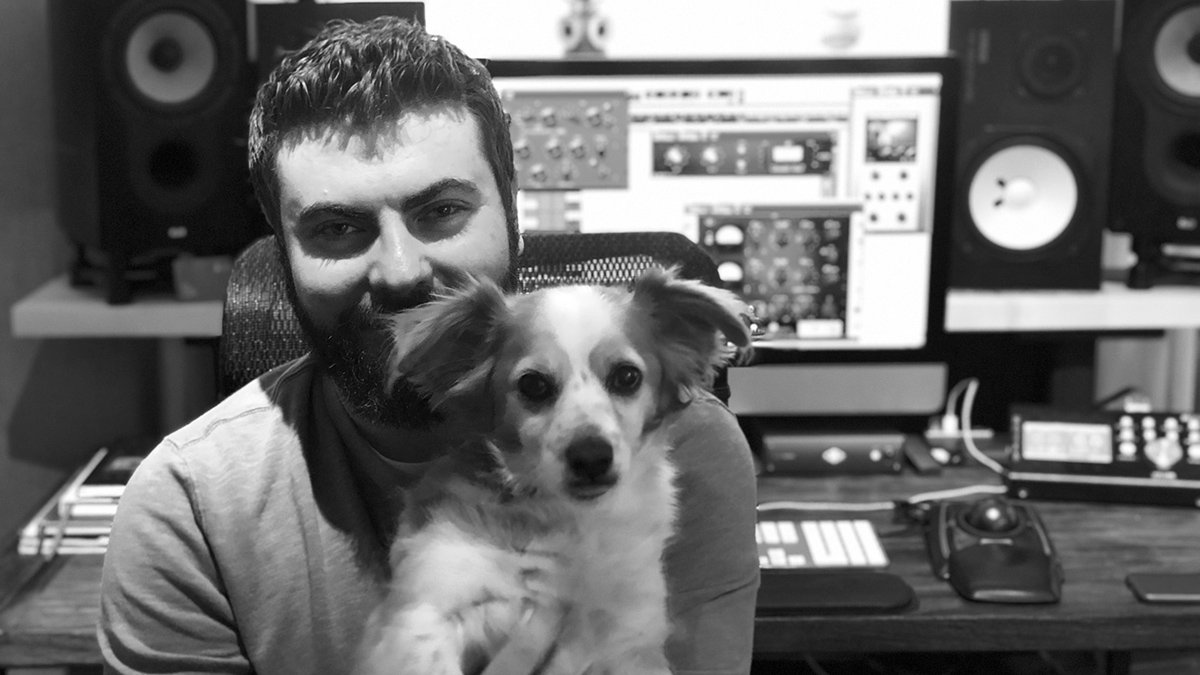
Who have you learnt most from over the years?
“There was a guy called Brian Springer, who used to be Chris Brown’s engineer -he used to mix all the Murder Inc. stuff - and there was so much to learn from him.
“Y’see, the Chris Brown sessions were wild. He likes the control room to feel like a party because he’s gauging how people are feeling off the music. So there’s like 30 people in the control room - drinks, smoking, all that kind of stuff…
“Now Brian wasn’t into that and you’d think that the two of them wouldn’t be a good fit, but Chris loved Brian. Brian would have a little air purifier next to him - I wasn’t sure if it was actually doing anything but it made him feel better! Watching Brian work, one thing I noticed was that he was very efficient and this was with Pro Tools 10, when there wasn’t off-line bouncing.
“So if you didn’t bounce while you were on a session then you’ve got to bounce everything after. So it’s ‘OK, now I gotta bounce everything…’ And it’s four in the morning and you’re gonna screw something up, but Brian had everything set up so that it was bulletproof. It was impossible to make mistakes. He knew everything that could go wrong and had a contingency in place to stop that. Plus Chris would rattle through six songs in a session… He’d stay in the booth until he was done and then come back into the control room and say ‘Let's listen’ and Brian could bounce it right then and there.
“So at the end of the night Chris would be like ‘We’re done’ and Brian would pack up and leave. ‘Cool. Who am I sending the bounces to?’ Done.”
You do a lot of mixing at your home studio. We see you’re using some Bower and Wilkins Nautilus 805s. That’s an unusual choice.
When I was in college I spent a summer installing home stereo systems in DC and for whatever reason they did a lot of B&W. And I remember listening to them and thinking ‘These are amazing speakers’. So not long after I graduated from college, my buddy still worked at the place and he got me a discount. They’re really like home hi-fi speakers but I know them so well, so I figured, why would I not mix off these?
I knew Lana Del Rey, but I wasn’t a great fan boy of hers and all the promo of her at that time she had the whole ‘50s very glamorous look, right? So she just walked in and I just thought she was just another writer.
“I do most of my work off the [Yamaha] NS-10s but I switch back and forth. Ironically, I feel I can get the bass and the drums better on NS-10s, largely because they don’t have bass! My thing is that I want it sounding like it’s exploding even off small speakers. If you solve all the problems on the little speakers then it just sounds better as you move up on speaker quality.
You’re a fan of the NS-10? Lots of engineers have a real love/hate relationship with them.
“I love NS-10s because I’ve been listening to them for almost 20 years. It took me a while to understand what the hell is going on with these things. If I was starting today, I don’t think I’d gravitate towards them, but at this point I know them because I’ve been listening to them for so long.”
You always get a great bottom end on your mixes. Any tips for a great 808 sound? Like the track Summer Bummer by Lana Del Rey?
“Distortion. That was in a two-week session and it was mostly writing with writers coming in every day. And [producer Boi-]1da didn’t even say who was coming in.
“Sure, I knew Lana Del Rey, but I wasn’t a great fan boy of hers and all the promo of her at that time she had the whole ‘50s very glamorous look, right? So she just walked in and I just thought she was just another writer.
“Right then I was on a kick that I wanted to use a [Neumann U47] FET47 on vocals. Because every time I do, it sounds great. And we’re just writing today so who cares? It’s just demo vocals. But she would not set foot in the vocal booth. All she would sing into was a [Shure SM] 58 in the control room. And that’s all she wanted to do. And I’m like ‘Oh, ok… fine…’ And I didn’t catch her name, but someone I knew came in and gave her a big hug, so I texted her. ‘Er, so who is this in this season?’ and she’s like ‘Um… Dummy, that’s Lana Del Rey’… I’m like ‘I probably should have known that…’ But she was so cool. So unassuming.
“But the track. That’s 1da’s drums. That’s what I like about 1da’s stuff. Everything is like ‘super punch’. Right up in your face. He doesn’t do murky kicks. It was him and Jahaan Sweet.
“Jahaan had played some piano part and we brought that into Pro Tools as they’re sitting in the back with their laptops and I’m on Pro Tools. And then we completely flipped and destroyed the piano part and flew that back in. But all credit to 1da. Those are 1da’s drums. There’s a reason why some of his drums are the most popular on Splice.”
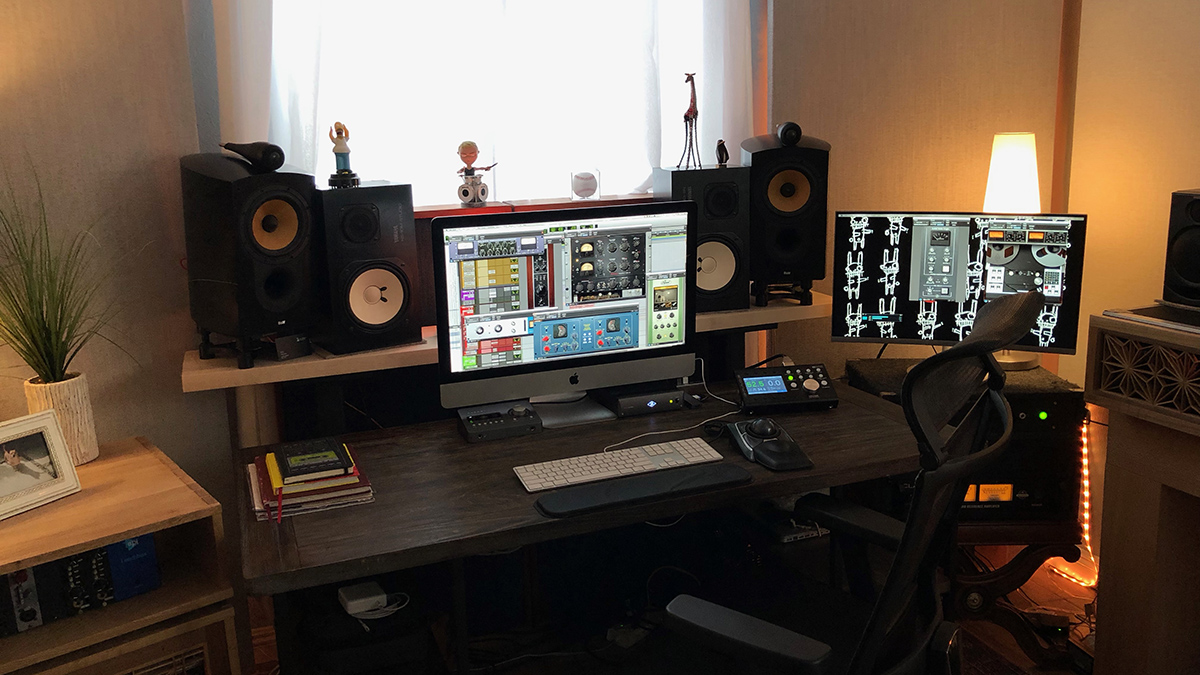
What are the plugins that you really lean on? What’s one thing you always open up?
“I love UAD. Mix-wise, in my template there are a number of plugins that are always there and 90% of the time they’ll always stay there. I love UAD’s tape stuff. All the 1176s they have… And I use a lot of Plug-In Alliance stuff too.
“I use FabFilter’s [Pro-Q 3] EQ a ton. Really just for corrective stuff, cutting. And its reverb, the Pro-R? It starts up and it looks like it’s doing a lot. And for the longest time I figured that this setting I was using was something I’d tweaked and arrived at, like a lot of stuff on my template. Tweaked it and saved it because I like it. But one day I dropped it on a track and realised that’s just the default. For like a year, my main reverb was literally just the default! And it’s still in my template.
“I use a lot of the UAD stuff for mixing. So mainly I’m mixing at home but a few times they want me to go into a studio for the final tweaks rather than coming to me, so then I’ll bring the UAD Satellite or the Arrow - that’s like my travel interface. I’ll either bring my ThunderBolt bridge or the Arrow and use that as the interface for the day.
“I would say I’m a little picky with my plugins. Some people only work with the plugins that everybody has because it’s easier, but I like to bring my stuff. But at the same time I don’t want to spend hours hauling gear and packing up, so this works for me.”
Tell us about working with Ariana Grande. What do you always have ready for a typical session?
“With the first album I came in at the end of the sessions so it was a very different process to what we’ve done since. She started that record in New York so we had to mirror what they’d used there.
“For whatever reason they had the Neumann M149 up for her vocal. And I don’t like that mic. Especially on her. There was a lot of mix correction stuff to get that right. People get obsessed by the top of her voice and think there’s a lot of EQ shenanigans to get that, but it’s not. That’s just her voice. I stay out of the way and I’m really very rarely boosting anything at the top end for her.”
“The 149 has a very present top that’s too much. The best mic for her is the Telefunken [ELA M] 251. We use the modern one, the Telefunken ‘USA’.
“I’ve worked with a lot of 251s and there are some great-sounding vintage ones and some not-so-great sounding vintage ones. There’s a company here called Audio Rents and they have one of the best-sounding 251s and everybody knows it. So it’s hard to get sometimes! It’s the mic Christina always wants… And Justin always wants… The first time I heard it it was on a Robin Thicke record and he was going between that and a [Sony] C800G. And with the C800… It’s like a C800. Then on the 251 it was like ‘Oh my god!’.”
What about the rest of the vocal chain?
“It’s a Neve pre. Pretty much for all vocals. The pre makes a significant difference to a small part of the sound. The Neve doesn’t get too edgy. I like the way that if you drive it it can saturate and break up a little if you want it to.
“Compressor-wise, a lot of it is the [Tube-Tech] CL 1B but, for most of the last album, Positions, with Tommy Brown, he really liked the chain of [Universal Audio] 1176 [compressor] to a [Teletronix] LA-2A which is fine. And in all honesty I set it up to sound like a CL 1B! So you’d get the compression of the 1176 and the tone of the LA-2A… but to me that’s kinda how a CL 1B sounds.”
Have you ever had a studio disaster? And what was the fix?
“There was one that was 100% my fault. And I was sweating bullets for about a week.
“It was on the Banks & Steelz session. Paul would do a lot of the comping himself and he came in with a hard drive that was full and he said ‘We’re going to leave this here so you need to clone it.’
“At that time Record Plant’s policy was that no hard drive stays plugged into any computer if there’s no session there. They don’t want to risk anybody walking in and having access to these files. So, when the session was done they would unplug all the hard drives and go.
“It was going to take a couple of hours to clone 500GB on a FireWire 800 drive so I thought I’d run it throughout the day. Now Paul had done a Save As to save a comp, but he’d done it to the back-up drive. So when I copied his drive to the back-up drive it saved over what he’d just done…
This is an industry where if you did good, you get a call back. And if you screwed up, they just don’t call you back.
“So I got onto the tech: ‘There has to be a way we can get this back!’ You could do it now, but back then… And we hadn’t even bounced it. Fortunately, this was midway through the week and I’d been making notes on what we did, so when Paul wasn’t recording I just re-did the comp.
“So at the end of the week I had to bring it up to him. The studio manager was like ‘Don’t blame the studio,’ and ‘You’re probably gonna get fired.’ and ‘Mark this down as a learning experience’. But I played it to Paul and he was like ‘Oh, I think this comp is even better… But that’s not going to happen again, right?’ And it was ‘100% DEFINITELY not going to happen again.’ I definitely learned a lot about file safety that day.”
Technical glitches aside, what’s the kiss of death during a studio session? What should we all avoid?
“Well, a lot of these artists want to be filmed… But then they don’t want to be filmed. And it turns out nobody is really comfortable with a camera on them all day long. So you can have sessions where there’s a film crew inside and that can lead to a weird working environment. People don’t want to act out because they’re on camera. They don’t want to look bad. But the next thing you know is that everything you’ve done in the last six hours? All of it? None of it is usable because they hated it but didn’t want to say so on camera… This is all scrap and this is all a waste of time.
“I try to steer my career towards people who are professional and treat this as business. Making records is art - it's definitely creative but we’re not here for the ‘glory of myself’ or just to play around.”
What’s been a great session? What’s been some of your favourites so far?
“Probably the stuff I’ve done with Ariana, of all of the artists I’ve worked with. I still do some tracking stuff here and there, but only if it’s something interesting to me. Vocal tracking is a very personal thing. To record somebody effectively, you kind of have to be like their best friend. And sometimes you have to create that in five minutes.
“But with Ari, I’ve been working with her for so long. She’s just as into the sound of everything as I am. And sometimes you get artists where I’m working my ass off to make this sound amazing and then it’ll go to someone else to mix and I listen and it’s like ‘Why didn’t you tell me I was so far off-base if this is what you want to put out?’
“This is an industry where if you did good, you get a call back. And if you screwed up, they just don’t call you back. But with Ari if she doesn’t like the way it sounds we’re not moving forward. It’s really exciting when it’s not ‘just a new song’, but everybody knows that ‘they love this’.
“That’s the engineer’s job - to make sure that they love this.
What are you working on now and what’s coming up next?
So, I’ve been doing mostly mixing. I’ve something for Ariana. She’s in an Adam McKay film [Don’t Look Up] and she did a song for the film with composer Nicholas Britell that’s really awesome which they asked me to work on which is going on the soundtrack. And there’s a Japanese artist by the name of Nissy; that’s like Japanese pop but every song is a little different. The songs are in very different lanes. It’s kinda fun because he’s blending a lot of genres within the J-pop criteria.
“There’s an artist in the UK that I’m going to be doing some mixing for and Ari’s got a few things she’s worked on. She has a whole setup herself now, so she can record and send stuff to me. I can clean it up and mix it and send it back to her to go on to someone else. So lots going on. It’s really fun right now.”


Daniel Griffiths is a veteran journalist who has worked on some of the biggest entertainment, tech and home brands in the world. He's interviewed countless big names, and covered countless new releases in the fields of music, videogames, movies, tech, gadgets, home improvement, self build, interiors and garden design. He’s the ex-Editor of Future Music and ex-Group Editor-in-Chief of Electronic Musician, Guitarist, Guitar World, Computer Music and more. He renovates property and writes for MusicRadar.com.
“They didn’t like his bikini underwear”: Prince’s support sets for the The Rolling Stones in 1981 are remembered as disastrous, but guitarist Dez Dickerson says that the the crowd reaction wasn’t as bad as people think
“We are so unencumbered and unbothered by these externally imposed rules or other people’s ideas for what music should be”: Blood Incantation on the making of Absolute Elsewhere and how “Data from Star Trek” saved the album – and the studio
